- Very fun to drive
- Quality cabin
- Tan leather!
- Obvious Hyundai parts bin useage
- Thirsty engine
- Boot and rear seat not huge
While it’s been somewhat of a drawn-out process, Korean luxury brand Genesis has been on sale in Australia for a few years now. Offering the mid-size G70 and large G80 sedans (the GV80 SUV is coming very soon), sales have been modest thus far locally thanks to a tiny dealer network. It’s a difficult task to launch a new brand in the already-crowded luxury space, so we tested the 2020 Genesis G70 2.0T to find out how talented Genesis is in making luxury sedans.
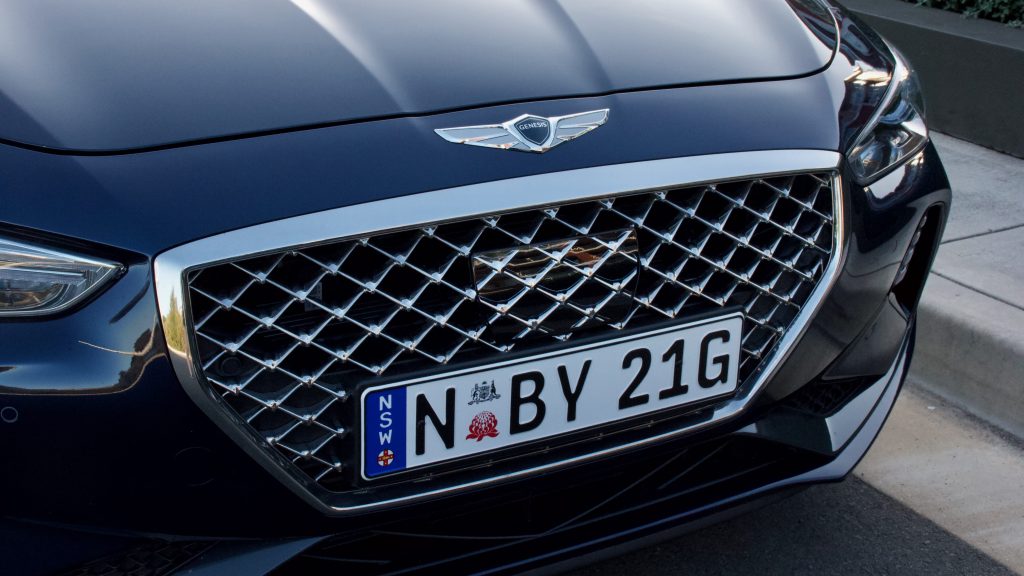
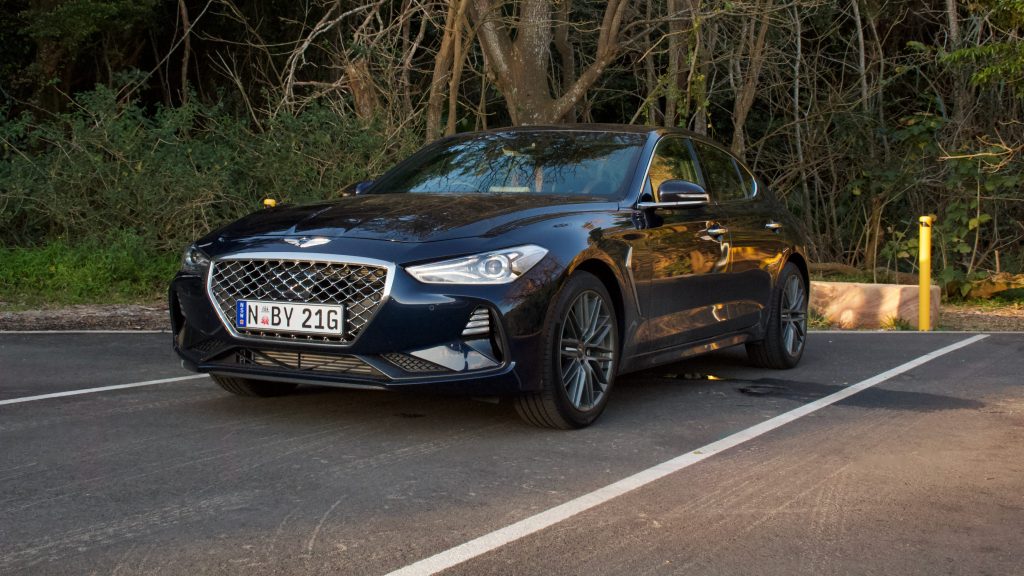
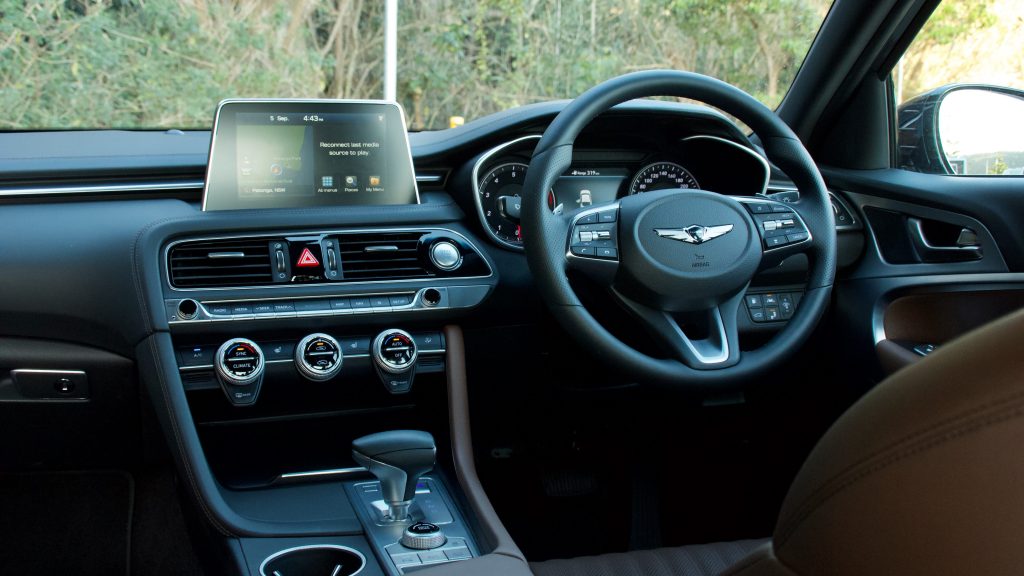
The G70 competes with cars such as the BMW 3 Series, Audi A4, Mercedes-Benz C-Class, Alfa Romeo Giulia and Jaguar XE and while it’s currently only available as a sedan, a wagon is reportedly under development ahead of the brand’s European entry – we really hope we get it here too. It’s priced from $59,300 plus on-road costs, and offers two petrol engine choices: a 179kW/353Nm 2.0-litre turbo four tested here, or a 272kW/510Nm 3.3-litre twin-turbo V6 – if these seem familiar, it’s because the G70 uses the same platform and drivetrains as the excellent Kia Stinger.
Price & Specs: 7.0/10
Pricing for the 2020 Genesis G70 range kicks off from $59,300 plus on-road costs for the entry-level 2.0T (which we tested). As mentioned above, a 3.3-litre twin-turbo V6 is also available, and there are four overall grades available: 2.0T, Sport, Ultimate and 3.3T Ultimate Sport – the Sport and Ultimate are available with both engines.
Despite being a base model, the 2.0T’s standard equipment is strong with LED lighting, 18-inch alloy wheels, leather upholstery, heated and 12-way electrically adjustable front seats, dual-zone climate control, an 8.0-inch touchscreen with inbuilt nav and digital radio, Apple CarPlay and Android Auto, a nine-speaker sound system, keyless entry and start with auto boot release, heated/auto-folding mirrors with puddle lighting, a wireless phone charger and selectable driving modes.
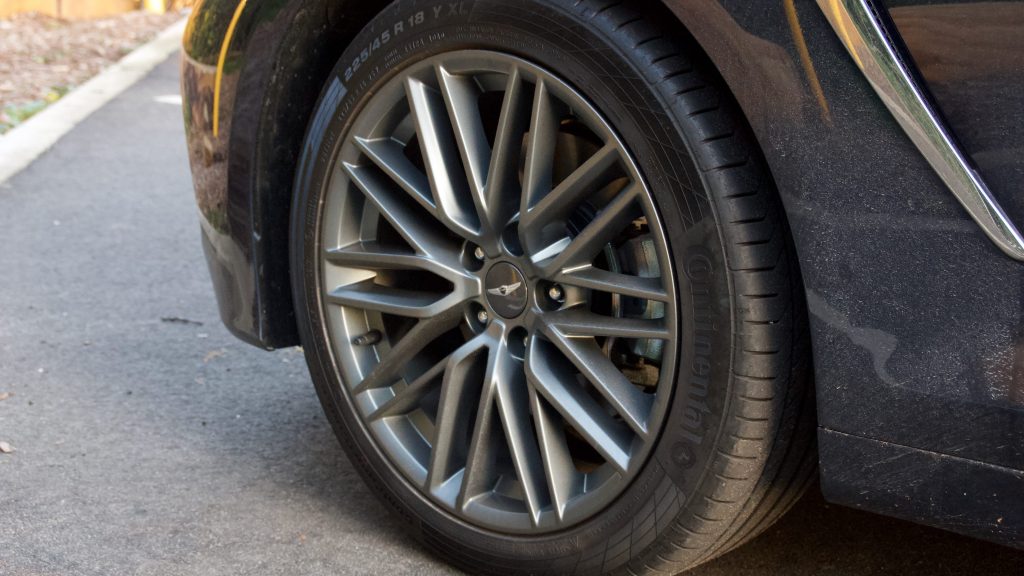
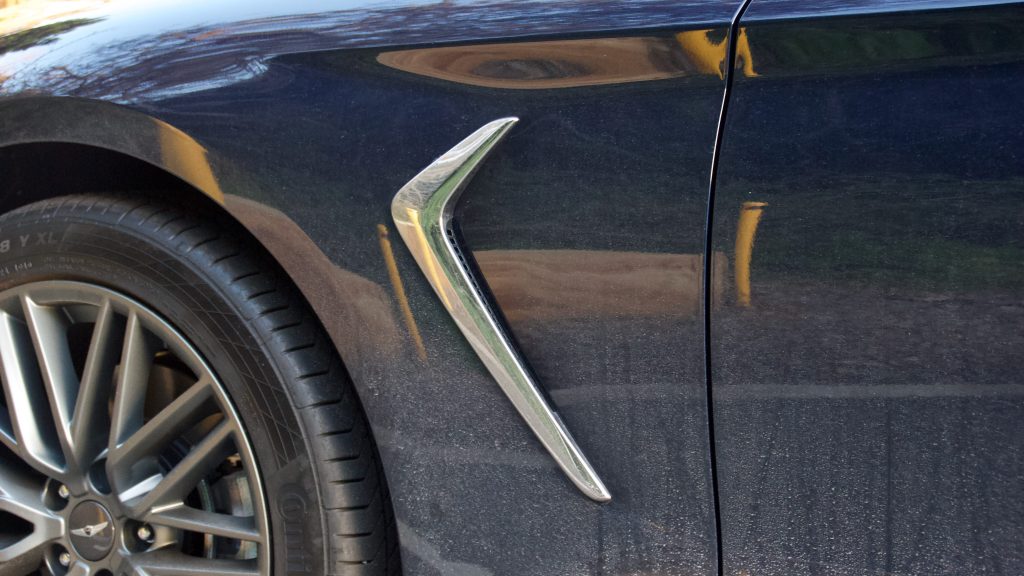
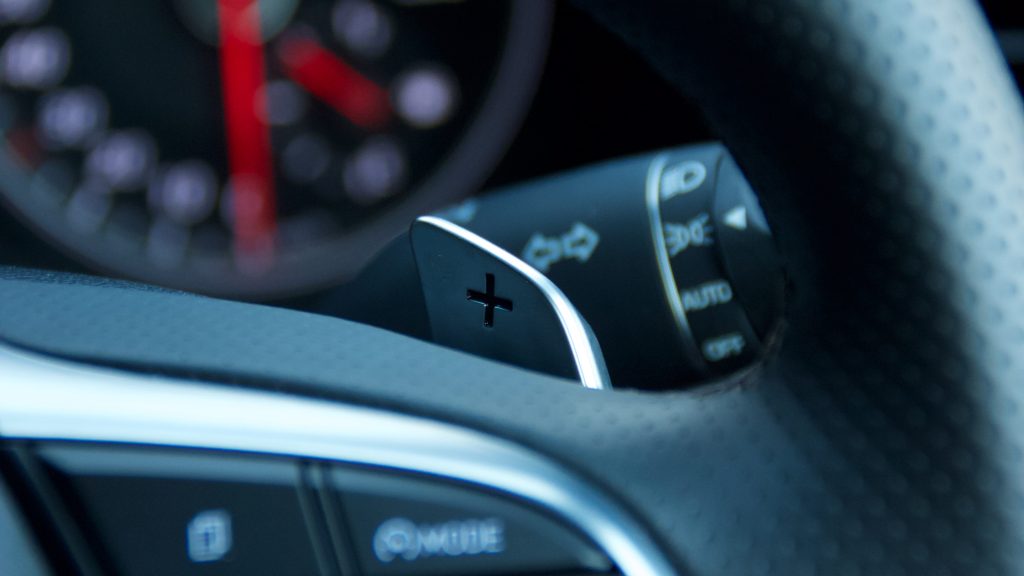
Standard safety kit is strong too with seven airbags, high- and low-speed auto emergency braking with pedestrian detection, adaptive cruise control with stop and go functionality, blind-spot monitoring with rear cross-traffic alert, lane keep assist and auto high beam – though kit such as rear auto braking, matrix lighting and turn collision assist isn’t yet offered.
Only a $2,500 sunroof is optionally available on the G70 Sport – even all of the colours don’t cost anything to add. Is there anything missing? Aside from the extra safety kit that rivals feature, things like rain-activated headlights, remote window operation, remote start from the key and auto-dropping mirrors when parking would take the G70 closer to newer rivals.
Above the 2.0T is the $63,300 Sport (available with both engines – the V6 is $72,450) which adds 19-inch alloy wheels with Michelin Pilot Sport 4 tyres, dark chrome exterior detailing, Brembo brakes and a mechanical limited-slip differential.
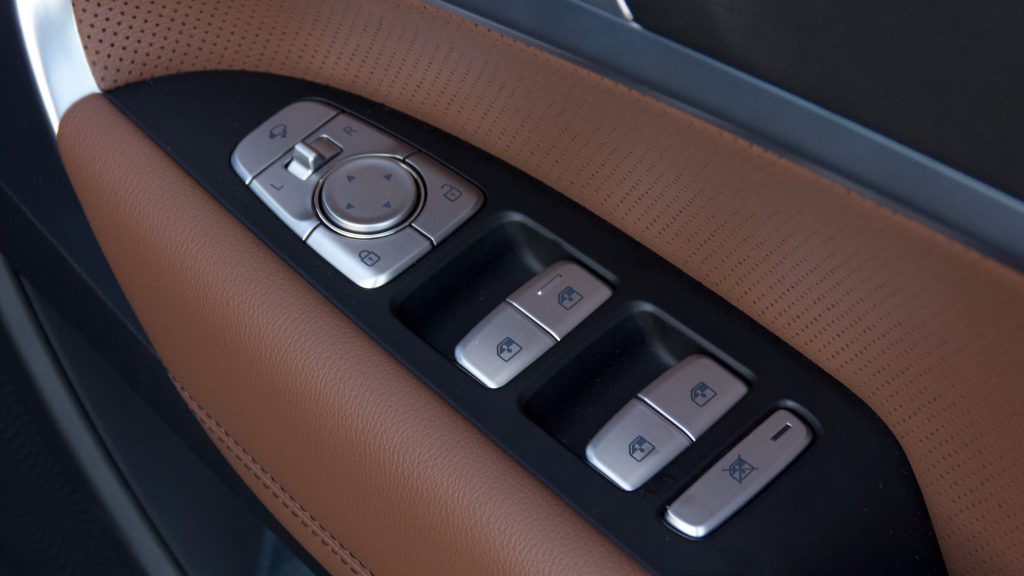
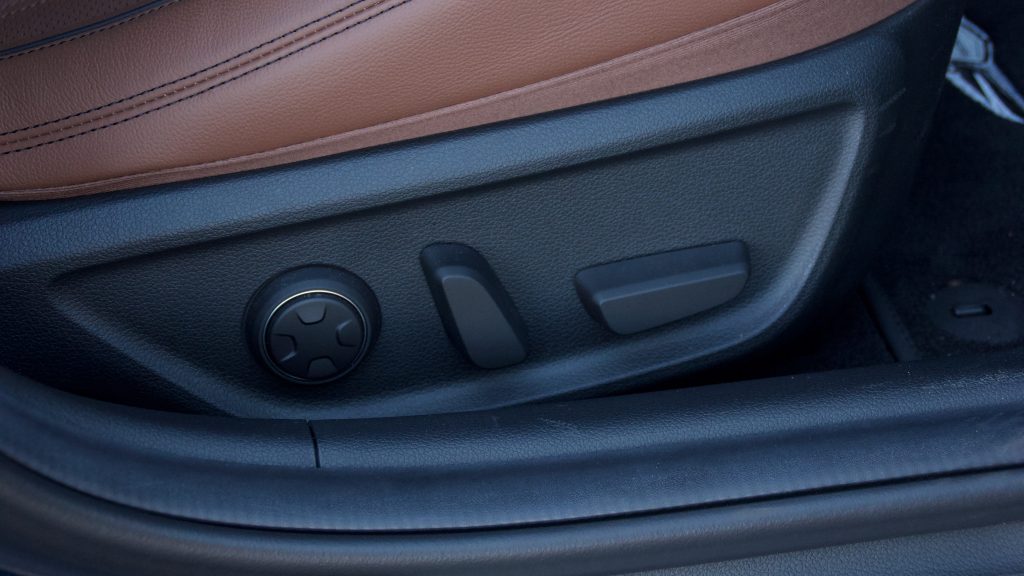
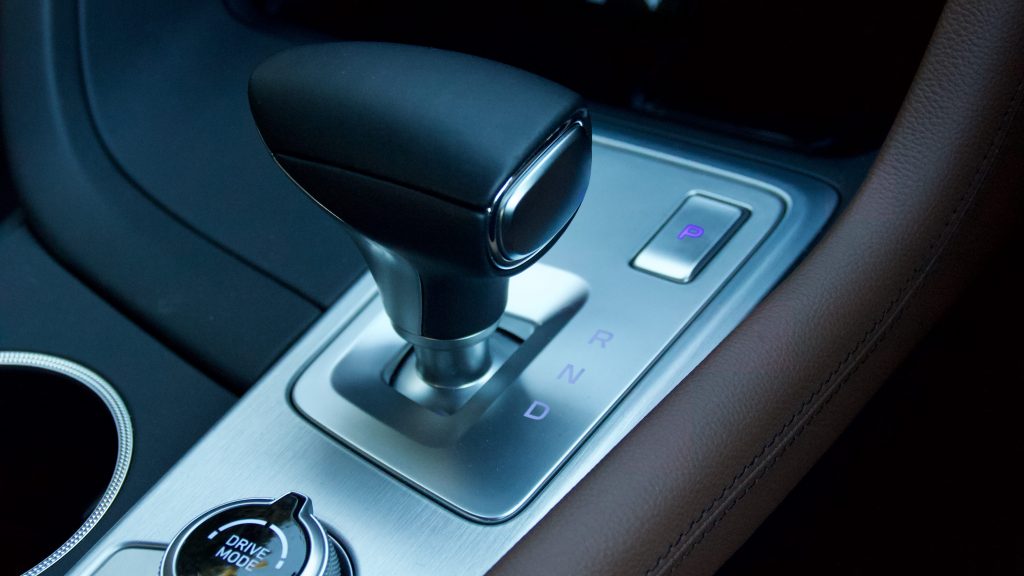
Above the Sport is the Ultimate (2.0T: $69,300, V6: $79,950), which further adds Nappa leather upholstery with 16-way driver’s memory electric adjustment, a heads-up display, a 360-degree parking camera, front cornering lights, a sunroof, a 15-speaker Lexicon sound system, heated and cooled front seats with heated rear seats, a heated steering wheel and a power-adjustable steering column. All V6 variants also feature adaptive suspension, a variable steering rack and torque vectoring.
The Sport Ultimate ($79,950) adds quilted Nappa leather, as well as the Sport’s exterior detailing.
Performance & Fuel Economy: 7.0/10
The 2020 Genesis G70 range uses both four-cylinder and V6 engines and here, we’re testing the entry-level 179kW/353Nm 2.0-litre unit. For most people, it’s definitely more than enough poke and the 5.9-second sprint to 100km/h is not to be sneezed at either. Thankfully, the twin-turbo V6 is available for those who do want more power, but I was more than happy in the 2.0-litre turbo G70. Performance can be brisk, with the engine more than up to the task of taking the sedan up to speed with little fuss.
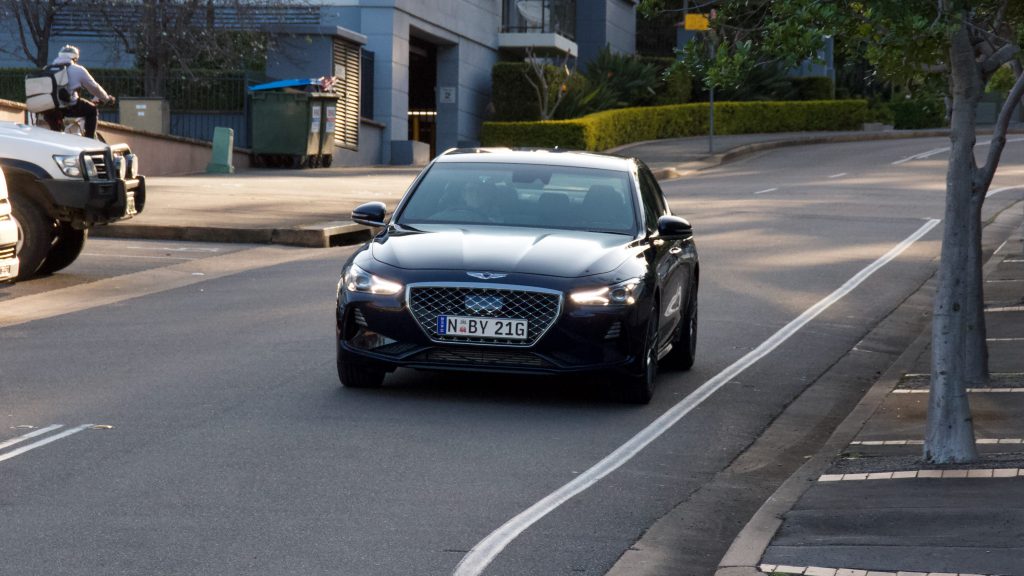
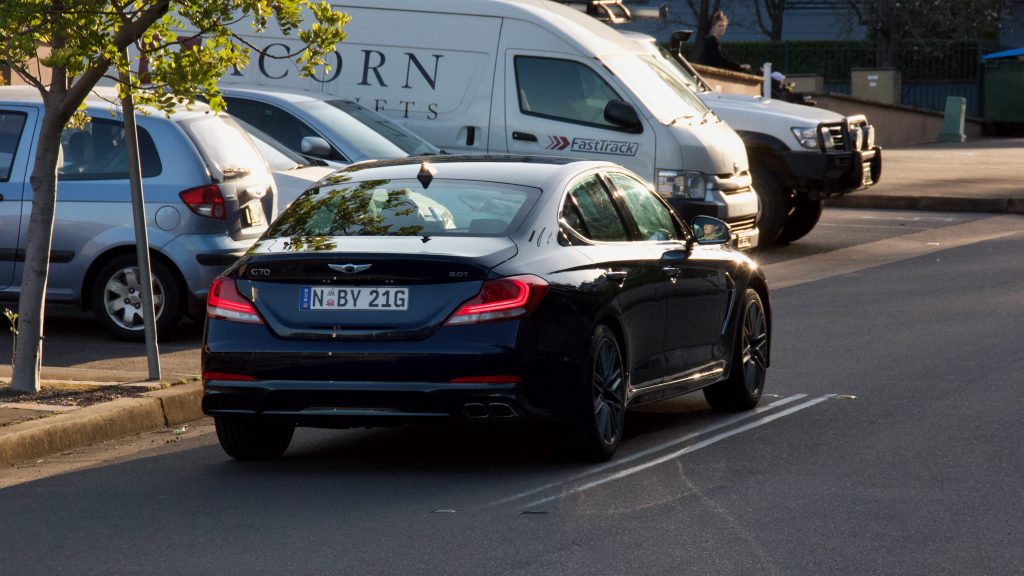
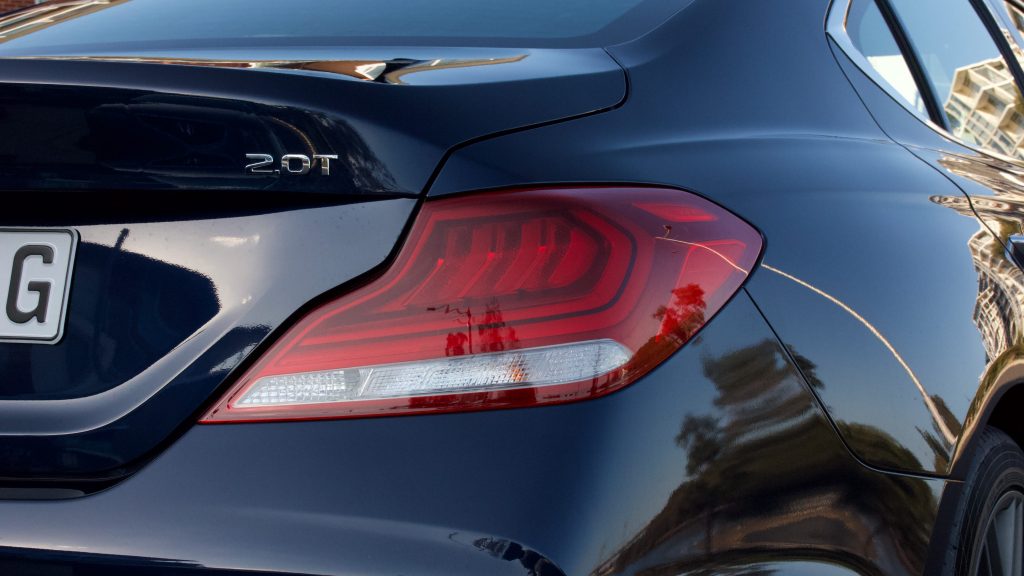
The fake engine noise doesn’t really add to the experience, but the engine itself is grunty and it loves to rev. The eight-speed automatic transmission is also excellent – it’s intuitive, the selector is easy to use, and the paddle shifters fall nicely to hand.
Fuel economy, like the Stinger, is not the G70’s best attribute. Genesis claims 8.7L/100km of minimum 95RON unleaded on a combined cycle, but even in our testing that skewed towards highway use, we struggled to keep it under 10L/100km. This is perhaps because of the G70’s heavy 1,646kg tare weight (a BMW 330i is over 200kg less at 1,433kg), or perhaps its older engine, but the more powerful 330i still claims 6.4L/100km – more than 2L/100km less than the Genesis.
Ride & Handling: 9.0/10
Like its competitors, the 2020 Genesis G70 places a lot of emphasis on being a sporty car to drive. Although it’s based on the same platform as the Kia Stinger – which itself is an excellent steer – the G70 is shorter by 145mm (4,830mm vs 4,685mm). This shorter length makes the G70 a more agile car than the Stinger, and in my opinion, it’s more fun because of it. You can chuck it in hard to corners and it just grips and grips. The 2.0-litre’s outputs aren’t quite enough to sustain oversteer moments, but really, does that even matter? The G70 is a very fun car to drive and it really puts the ‘sport’ in sport sedan.
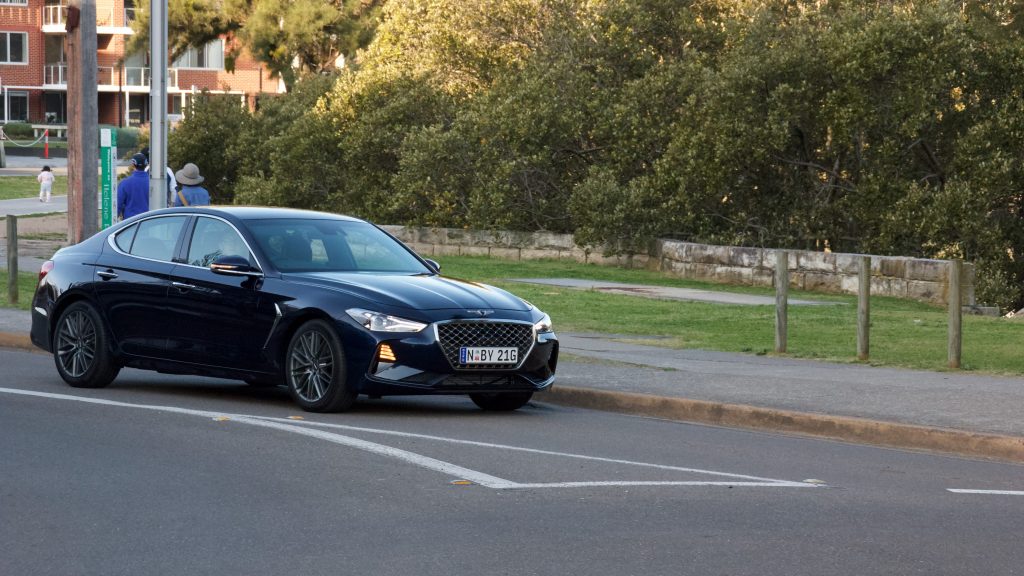
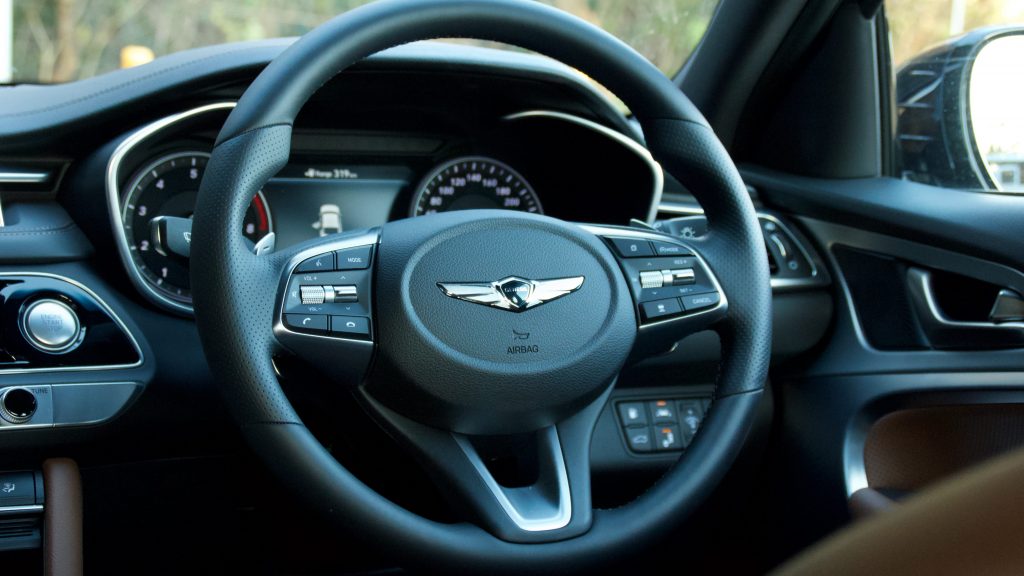
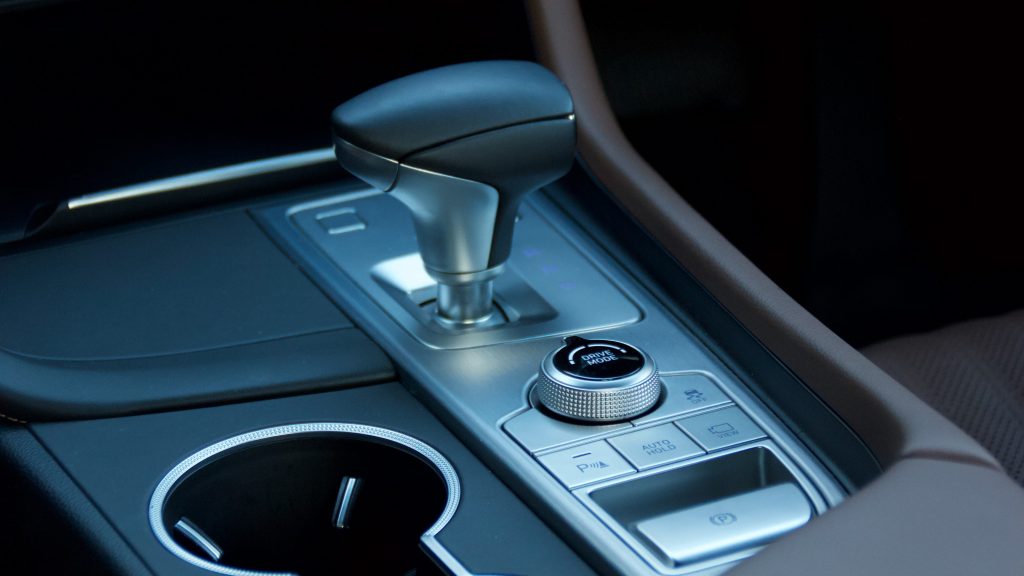
Yet the G70 is also a very comfortable car and has been tuned well for Australian roads – Hyundai’s local tuning team reportedly tried more than 400 combinations to get the car’s dynamics just right. The ride is taught on the standard 18-inch wheels, and while sharper bumps can be felt in the cabin, they do very little to upset the car. The steering is also great with reasonable feel and excellent weighting – best of all, unlike a lot of previous generation Hyundai Kia products, fake heaviness is nowhere to be found and it’s nice and natural. It’s also very sharp, which I really appreciate.
From the driver’s seat, the G70 offers reasonable vision, though its high sides to take some time getting used to. The driving position is excellent, though there’s a touch more road noise than we’d like – especially considering that the 2.0T rides on the smaller 18-inch wheels.
Interior & Practicality: 8.0/10
Where the luxury brands have traditionally done battle is on the inside, and the cockpit of the G70 is a lovely place to spend time. The swoopy design of the dashboard catches your eye, while the material quality is great with plush materials and a built-to-last feel. The quilted leather’s quality is impressive, and that’s only the entry level model as well – the Ultimate adds higher quality Nappa upholstery. The steering wheel falls very naturally to hand, and the driving position is excellent – nice and low to emphasise the car’s sporty nature.
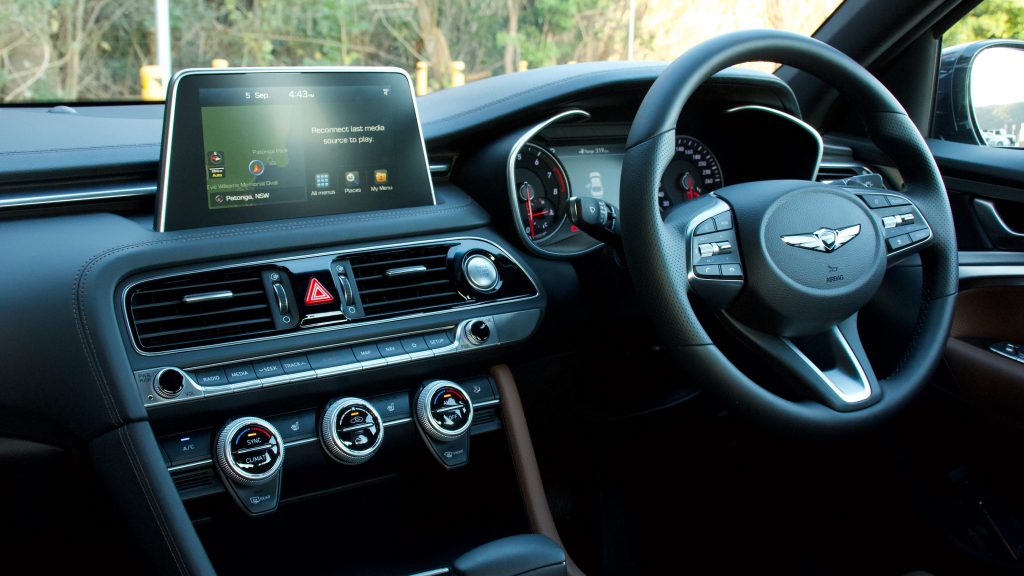
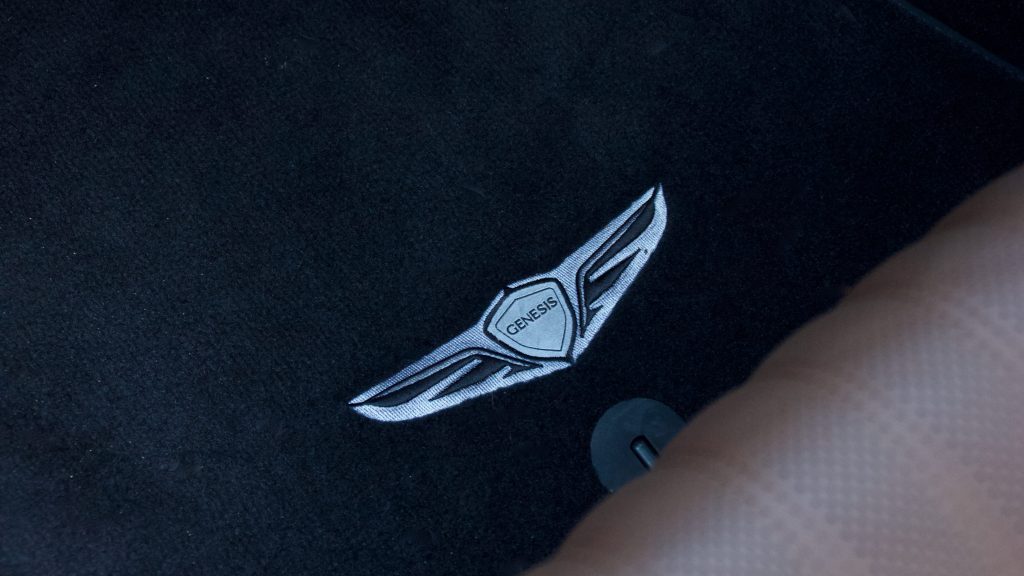
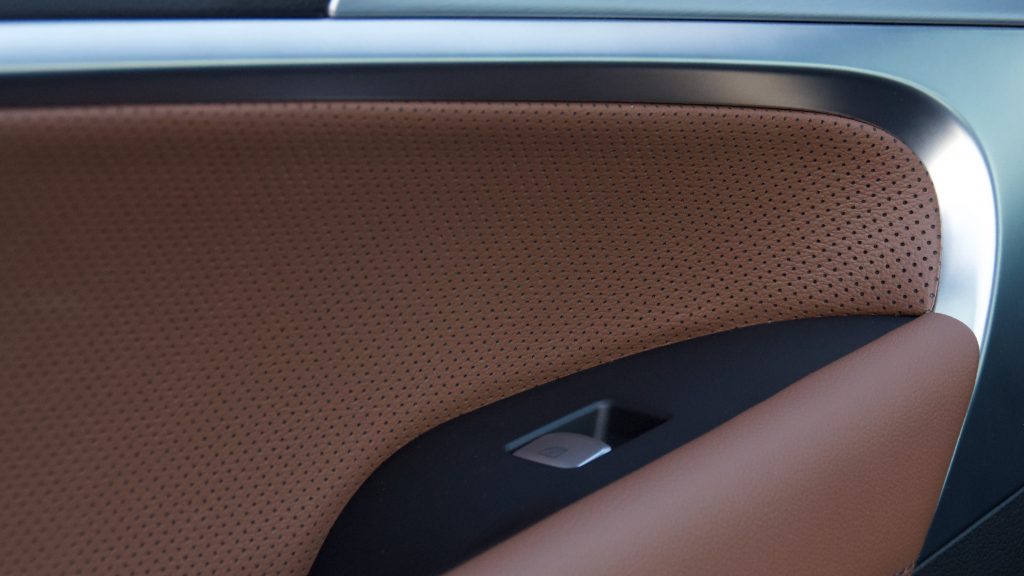
Importantly for a luxury car, colours other than black are available – our test car featured a gorgeous tan combination, for example. The seats themselves are very comfortable too, yet also quite supportive for harder driving. The quilted pattern is also quite tasteful, and did I mention it has tan leather!? Delicious.
Centre of the G70’s cabin is an 8.0-inch touchscreen with Apple CarPlay, Android Auto, digital radio and a reversing camera and in truth, it’s my only big complaint with the G70’s cabin as the software itself has come straight from much cheaper vehicles like the Hyundai i30. There’s absolutely nothing wrong with it and it’s extremely easy to use, it just should feel more upscale – the facelifted G70 will fix this with a new 10.25-inch unit.
The standard nine-speaker sound system is excellent however, and the LED ambient lighting looks great at night. I also like that it’s not a complete tech fest – yes, a digital driver’s display should be standard, but unlike some cabins (the Jaguar XE, for example) in the segment, the G70’s cabin is not intimidating upon first use. Hyundai’s typical ergonomic qualities are very much present inside the G70 – albeit covered in metal and leather.
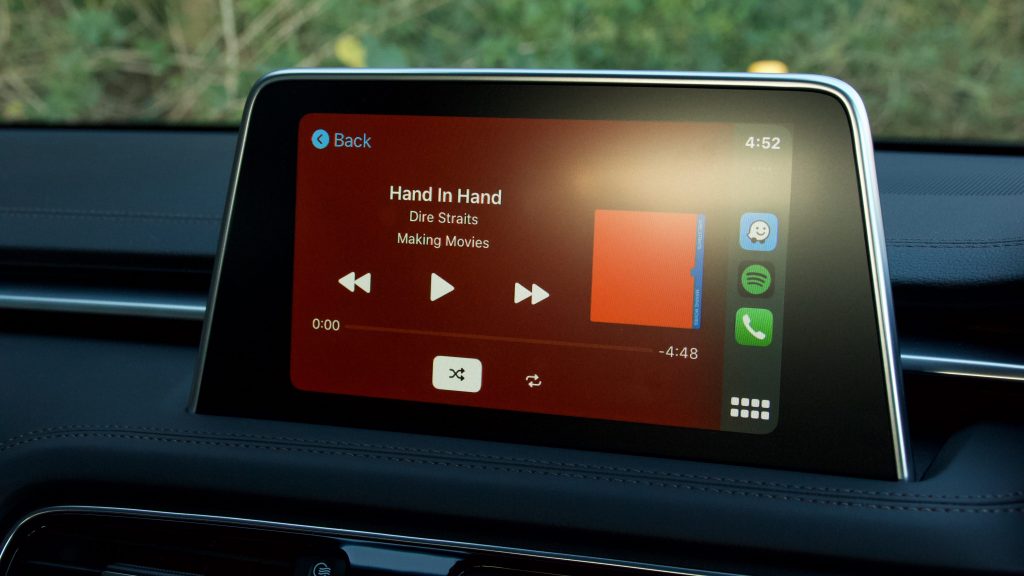
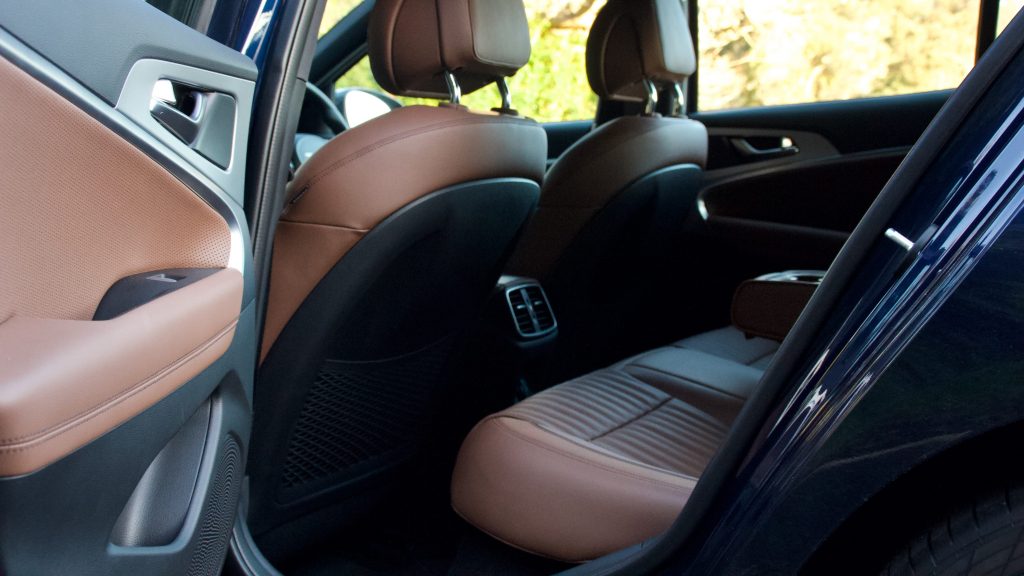
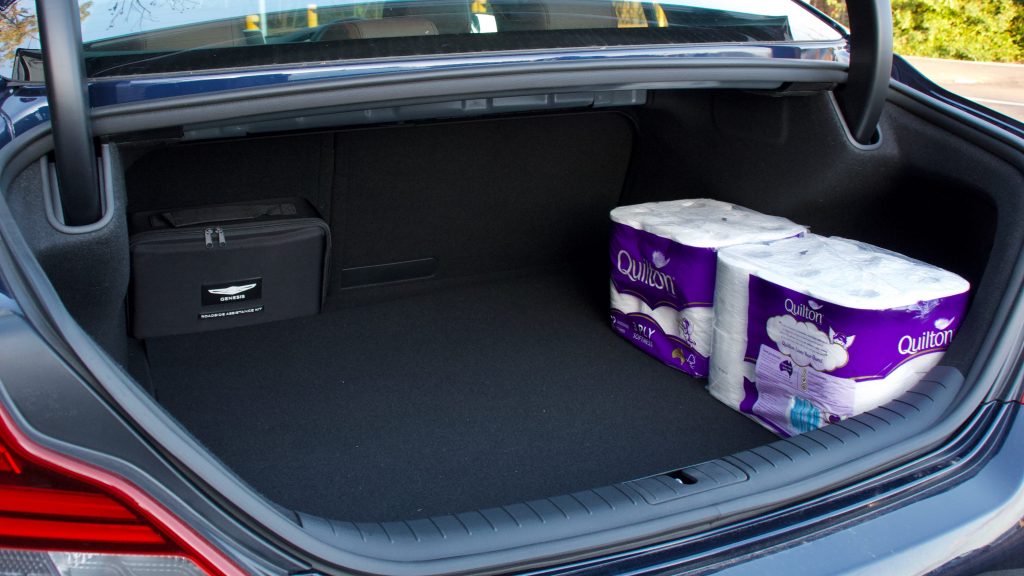
Like a lot of competitors, it’s not the most practical cabin– loose item storage is scarce, and rear seat room is not particularly plentiful either as my six-foot frame only just fit with both head- and knee-room. Rear seat occupants do get a centre arm rest with cup holders, vents and charging ports, though not a separate climate zone, nor blinds or heated seats.
Boot space is rated at just 330-litres thanks to a high boot floor, which is small compared with the 460L Audi A4 and 480L BMW 3 Series, let alone the larger and cheaper 625L Skoda Superb.
Service & Warranty: 9.0/10
Like its Hyundai parent, the Genesis brand offers excellent ownership credentials: a five-year/unlimited km warranty with five years of roadside assistance, as well as five years of free servicing. While some competitors such as BMW and Audi only offer a three-year warranty, Mercedes-Benz and Volvo now offer five years of coverage – Genesis’ free servicing for five years/50,000km is a big drawer to the brand, however.
While the servicing is free, the intervals need improving, as servicing the G70 occurs every 10,000km or once yearly – rivals offer 15,000km+ intervals. Genesis will come to your house and collect your car (within 70km of a service centre), leave a loan car with you and return it once the service is completed, however. Talk about service!
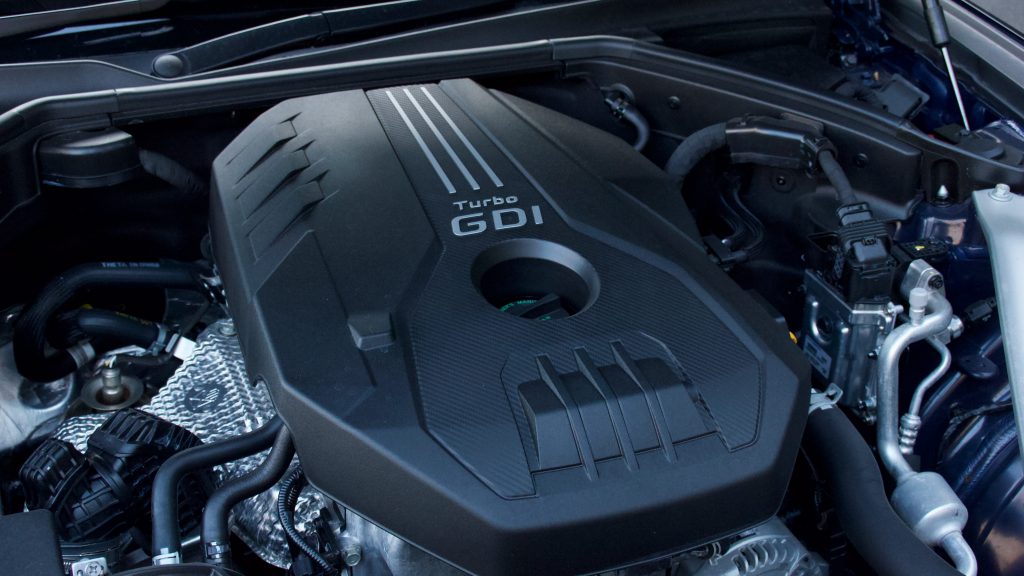
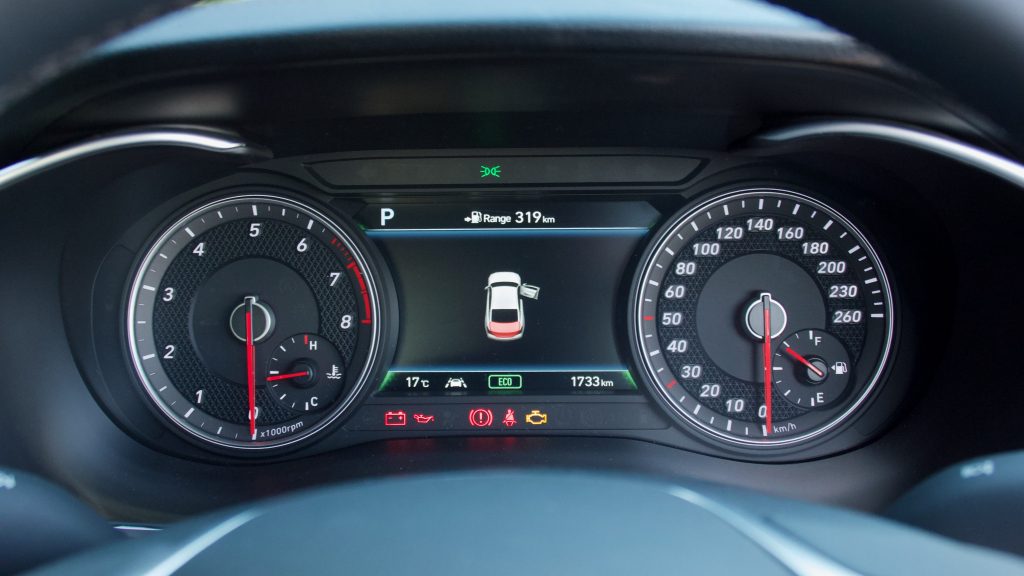
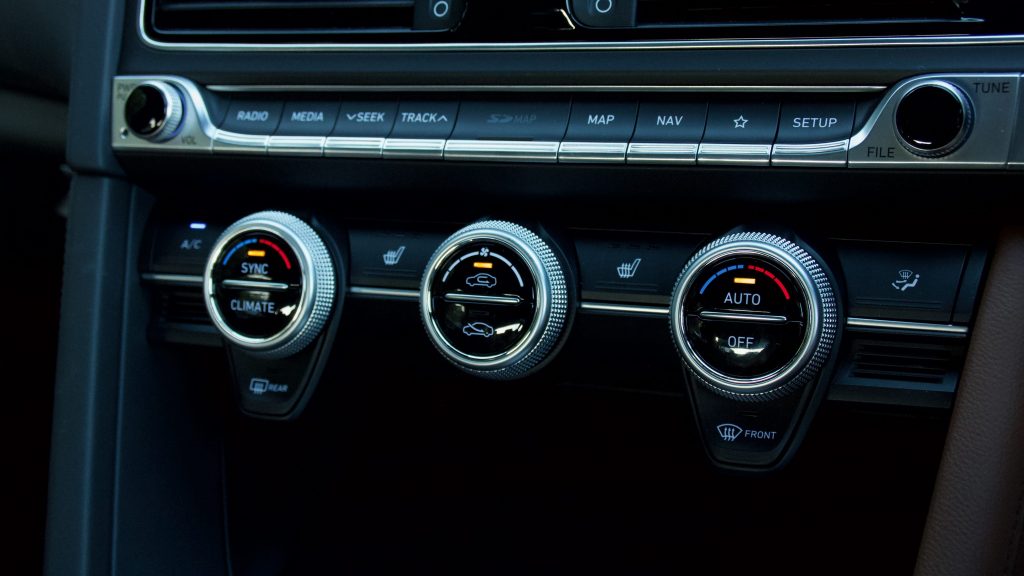
Buyers also have access to the Genesis Connected Services app, which allows owners to remotely start their car or flash the hazard lights, check their driving history and even book a service for the ultimate in convenience.
The 2020 Genesis G70 2.0T DiscoverAuto Score: 8.0/10
Let’s not mess about: the 2020 Genesis G70 is a strong addition to the luxury segment. While it could be better value for money, use less fuel and have longer service intervals, the G70 scores big points with its great cabin, fabulous driving dynamics and handsome styling.
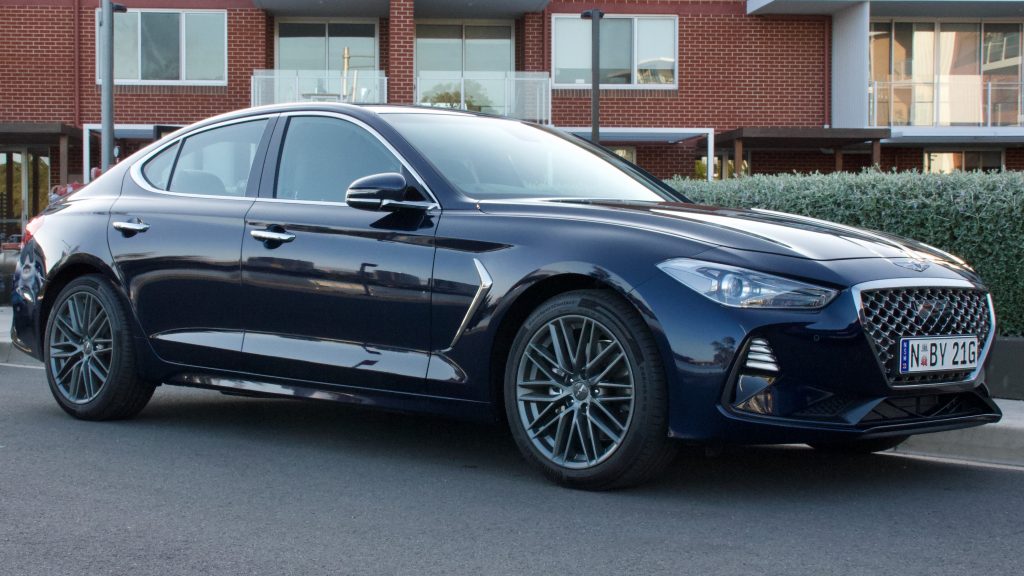
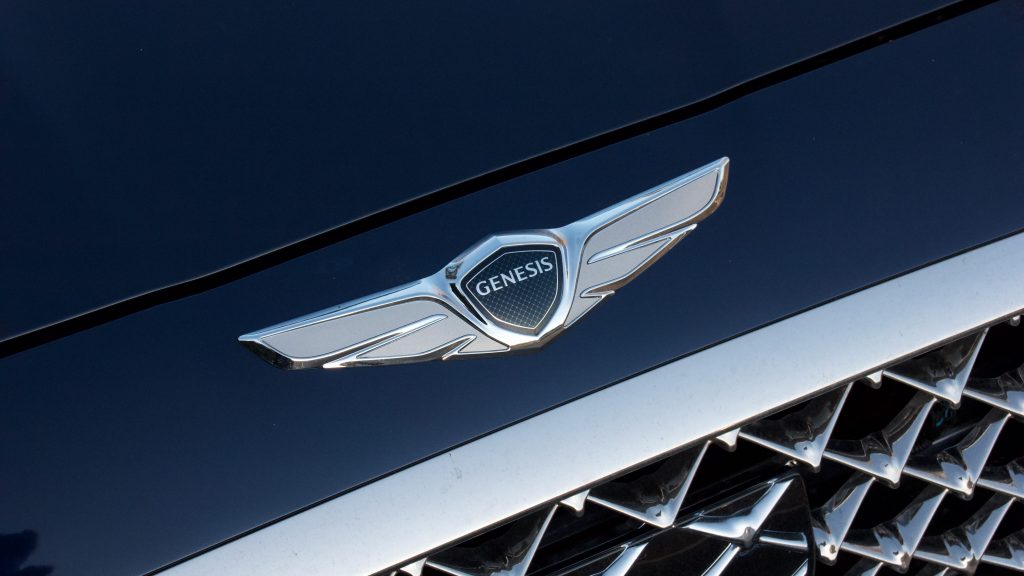
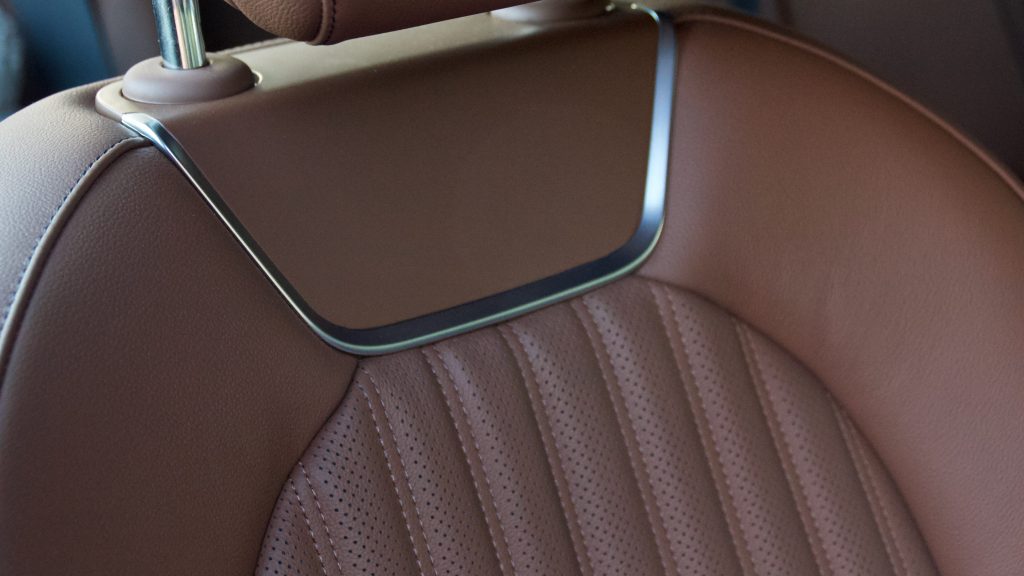
But more than that, the G70’s character and sense of identity give it more than copycat status in the segment – instead of borrowing from competitors like so many do, the G70 walks down its own path of what it thinks luxury is and it stands out for that alone.
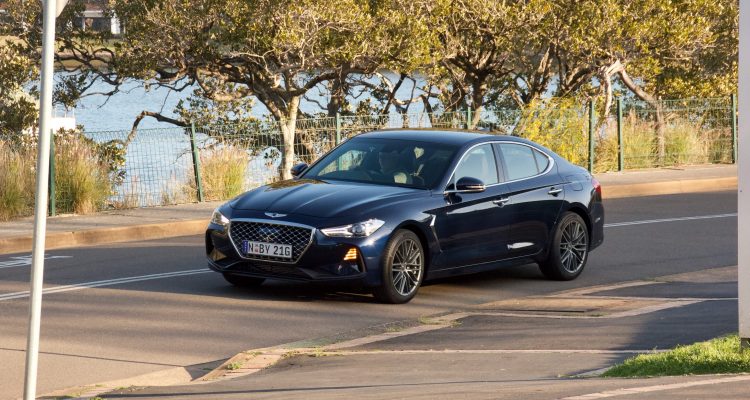
[…] testing the Genesis G70 2.0T, we came to the conclusion that it’s a strong addition to the luxury segment – bringing […]